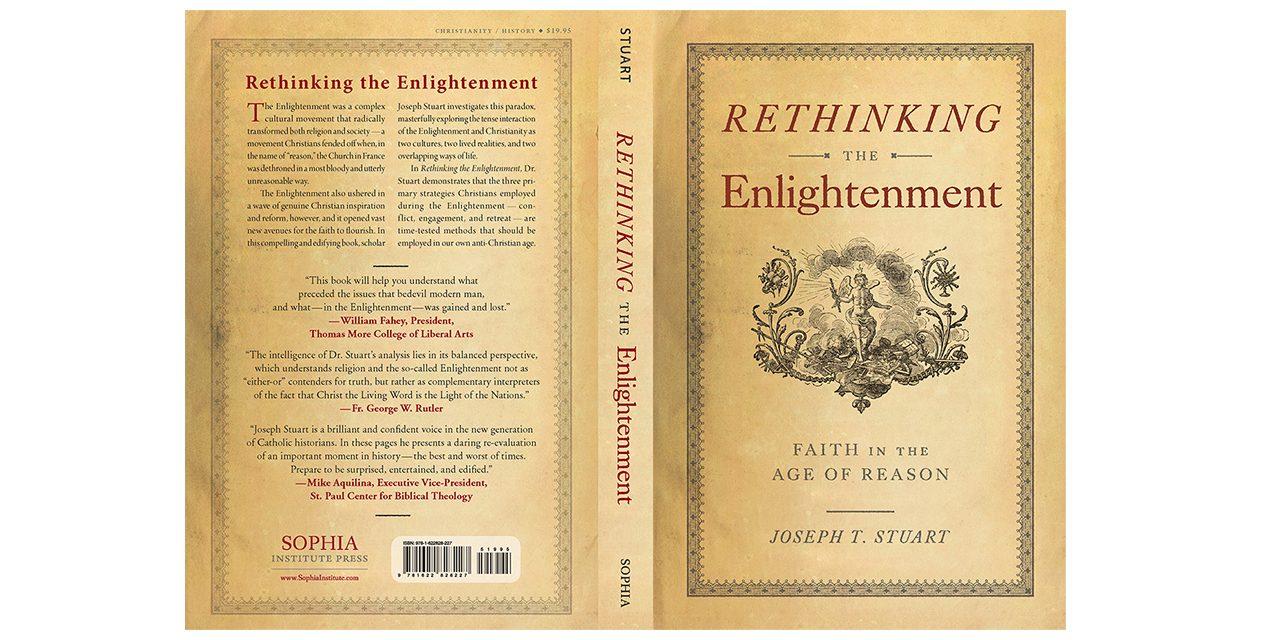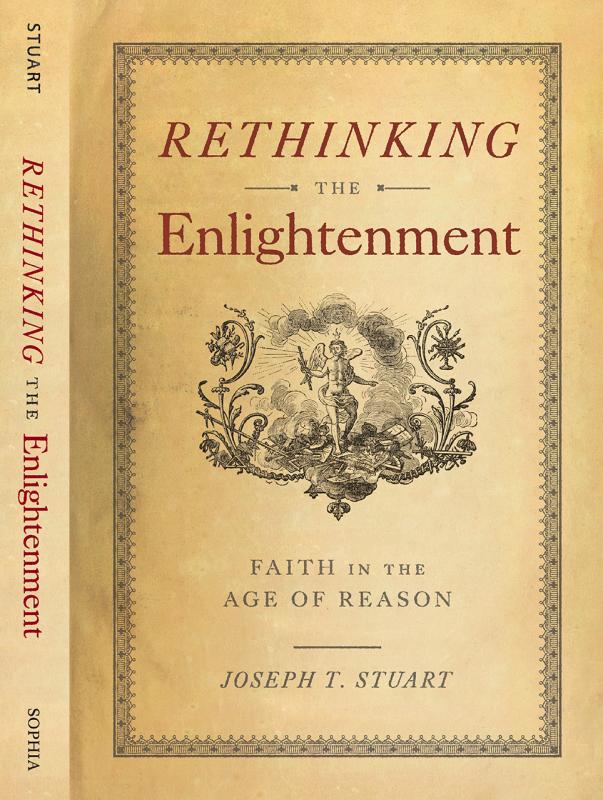University of Mary Professor’s New Book Draws Parallels Between Society Today and Life in the 18th Century

“I wrote ‘Rethinking the Enlightenment: Faith in the Age of Reason’ as a reflection on interacting with diverse people in a divisive age—both today and in the eighteenth century.”
BISMARCK, ND — The 18th Century, or the 1700s, known as the Age of Enlightenment, is historical proof that the more things change, the more they stay the same. The Enlightenment was a powerful and diverse cultural movement of the eighteenth century, trumpeting the merits of science, practical improvements, and polite interaction in the burgeoning public sphere of coffeehouses and cheap print media.
In Dr. Joseph Stuart’s newly released book, “Rethinking the Enlightenment: Faith in the Age of Reason,” he investigates more than just the relationship between Christianity and the Enlightenment, but the interaction between two cultures, two lived realities, and two overlapping ways of life. “The Enlightenment was an exciting time of increasing networks of communication in ways resembling our digital age,” Stuart said. “People started drinking coffee during the Enlightenment,” he noted. “It kind of sped up modern life. It has been sped up ever since.

“Because the Enlightenment is often ignored as a source of religious inspiration, it needs to be remembered differently,” said Stuart, author and associate professor of History, and a fellow in Catholic Studies at the University of Mary. “To do that, we must rethink how it has often been portrayed as the root of secular modernity. Seen as opposing faith to reason, the Enlightenment is blamed for putting religion into terminal decline. Despite creating serious challenges and direct attacks on faith, however, the Enlightenment also opened new avenues for faith to flourish—Christian faith in particular. There was a fascination with the physical sciences then, as now. At that time, though, people more easily connected their scientific knowledge to God as the source of reason itself.”
Stuart also writes about the “Practical Enlightenment” when people like Benjamin Franklin invented bifocals, lightning rods, and vaccination. The steam engine that powered the Industrial Revolution was invented in 1712.
“Amid the great material changes brought about by this Industrial Revolution, broken families as well as new job opportunities sent many rootless people wandering,” said Stuart, who’s been a faculty member at the University of Mary for 10 years. “Loneliness spread. The English woman Martha Clagget wrote of her childhood: ‘I was almost left to myself, my parents being greatly engaged in worldly affairs.’ Then, as now, broken families, alcoholism, and despair undermined social cohesion.”
Like today, Stuart argues in his book, Christians interacted with the Enlightenment in three ways: through conflict, engagement and retreat.

Stuart sees these three strategies of cultural interaction as a way of framing debates to ease societal discord today. Sometimes one must fight (conflict) for what is right. Other times one needs to engage others with an open mind. Or, one needs to know when to just leave others to their business and mind one’s own (retreat). Each strategy, he says, is necessary in different times and places.
“I wrote ‘Rethinking the Enlightenment: Faith in the Age of Reason’ as a reflection on interacting with diverse people in a divisive age—both today and in the eighteenth century,” said Stuart, who brought together not only his research, but that of many other scholars to write the book. “It is within this dynamic of different responses to modern culture that faith and reason can purify each other by questioning assumptions. This made for vigorous debate in the coffee houses, newspapers, and even papal courts of the eighteenth century.”
So Stuart asks the question: How can we communicate with each other in order to accomplish practical tasks like road building or hammering out compromises between our different views of the common good in our society?
“‘Rethinking the Enlightenment: Faith in the Age of Reason’ reminds us of the importance of practical mindedness in human affairs over ideological rigidity. The Enlightenment fostered a culture of conversation in which a certain code of politeness tried to elevate human interactions. In this way, the Enlightenment worked against the kinds of boorish disrespect and ideological divisiveness sometimes characteristic of the public sphere.”
“Rethinking the Enlightenment: Faith in the Age of Reason” is published by Sophia Institute Press and can be purchased on their website https://www.sophiainstitute.com/products/item/rethinking-the-enlightenment. It also appears on Amazon.com, barnesandnoble.com, and at Mayo Pharmacy in downtown Bismarck.
